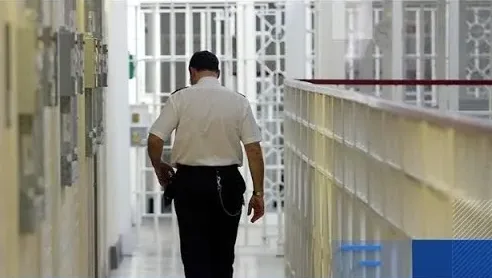Government under fire after admitting 91 prisoners were wrongly released in just seven months
More than ninety prisoners have been released by mistake in England and Wales in just seven months, new figures reveal, intensifying scrutiny of the country’s overstretched and error-prone prison system.
The Ministry of Justice confirmed that between April and October this year, ninety one inmates were wrongly freed, a figure that Justice Secretary David Lammy described as “symptomatic of a prison system under horrendous strain”.
Lammy said the crisis had been years in the making, blaming deep staff cuts and underfunding under previous Conservative governments. “We must bear down on these numbers,” he told MPs. “When you reduce the number of experienced prison officers by a quarter, mistakes happen.”
The fresh data comes amid growing alarm over a series of blunders. Two men were accidentally freed from HMP Wandsworth in the same week, while convicted sex offender Hadush Kebatu was mistakenly released from HMP Chelmsford before being deported last month.
The Ministry of Justice said the figures included all prisoners released when they should have remained in custody, provided the error was not the result of deliberate manipulation. Officials cautioned that the data was not directly comparable with annual statistics, as some cases may be recorded later.
Last year, a record 262 prisoners were mistakenly released, a 128 per cent rise from the previous year. The ministry warned that revisions for recent months “have tended to be upwards”, suggesting the total could climb even higher.
Lammy told the House of Commons that his department was now working urgently to overhaul the prison release process. “The system we inherited is archaic and fragile,” he said. “It relies far too heavily on paper-based records. Only new technology will fix this.”
He outlined a set of emergency measures, including a team of data scientists to review historic errors and identify systemic faults. The government will also spend up to ten million pounds over the next six months on artificial intelligence tools to reduce human error, as well as launching a hotline for staff to verify warrants before releasing offenders.
Lammy also confirmed that three prisoners released by mistake remain at large. One was serving time for aggravated burglary, another for a drug offence, and the third for failing to surrender to police. One is a foreign national offender, while the other two are British citizens. A fourth possible case from early November is still under investigation.
Shadow justice secretary Robert Jenrick accused Lammy of presiding over “a complete and utter farce”, claiming the government had “literally lost track” of how many prisoners had been freed. “The public are being put at risk,” he told MPs. “The justice secretary must get a grip or go.”
Jenrick argued that Labour’s new early release scheme, which allows some prisoners to leave after serving forty per cent of their sentence instead of half, had added to the confusion. “This chaos is a direct result of Labour’s botched scheme,” he said.
The government introduced the early release programme to ease overcrowding after prisons hit near full capacity. Lammy defended the decision, saying it was necessary because the previous Conservative administration had failed to build enough new cells. “We are dealing with a system that has been neglected for more than a decade,” he said.
The independent review into mistaken releases, announced earlier this year, is due to report its findings in February. It will examine how record-keeping, staffing and communication failures have contributed to the mounting number of wrongful releases.
Prison reform campaigners say the figures reveal a system under extraordinary pressure. A senior justice source described the situation as “deeply worrying”, adding that the combination of high inmate numbers, staff shortages and outdated processes is “a recipe for error”.
While the government insists its new technology and oversight measures will bring the crisis under control, opposition MPs warn that confidence in the justice system is already at risk. With more than ninety prisoners having walked free by mistake since April, that confidence may prove difficult to rebuild.
